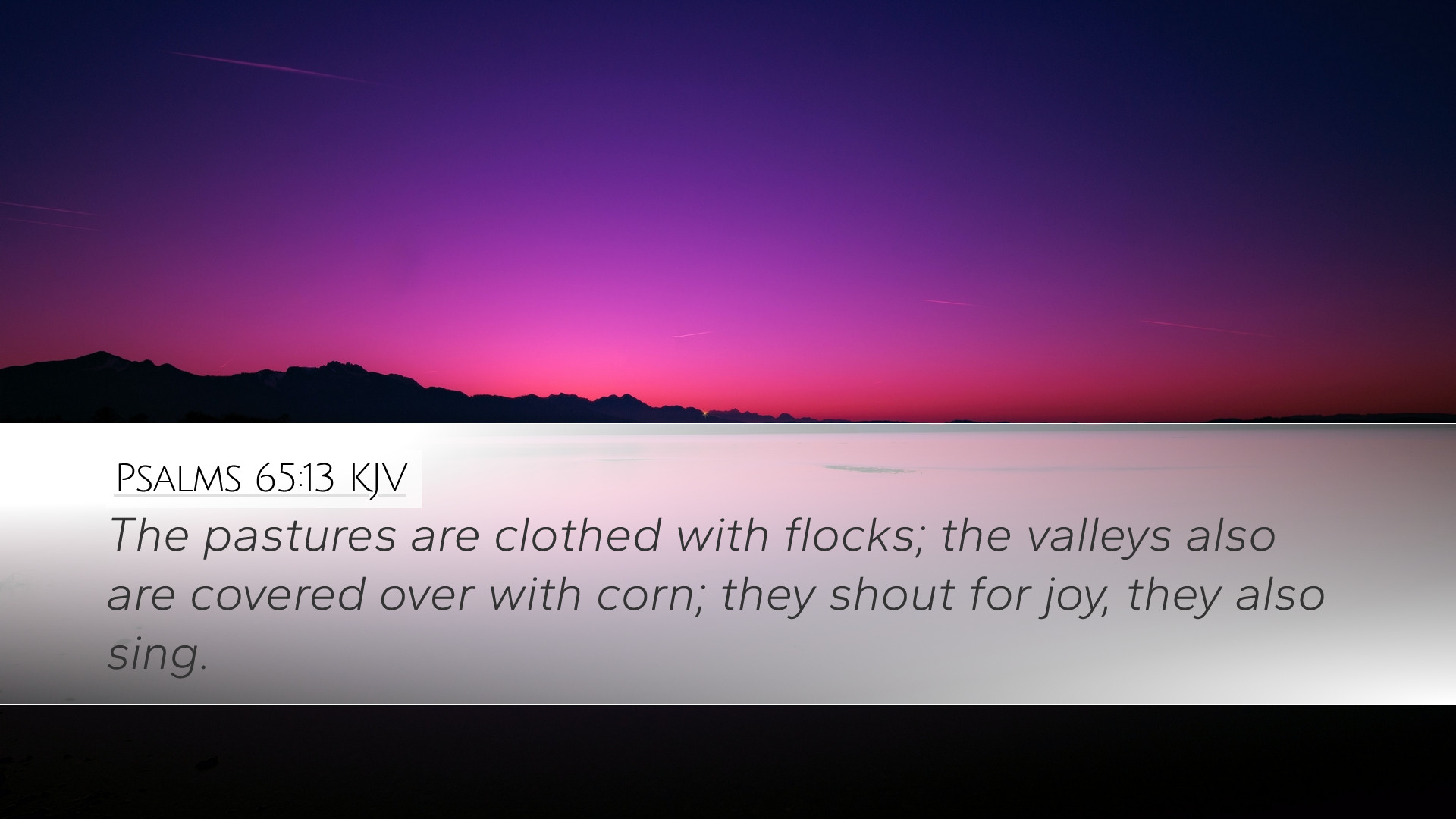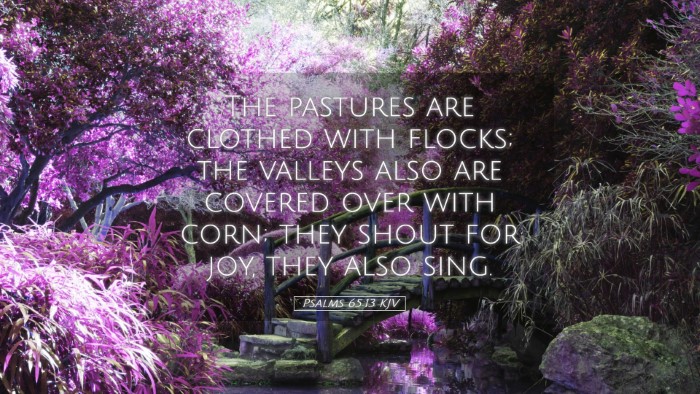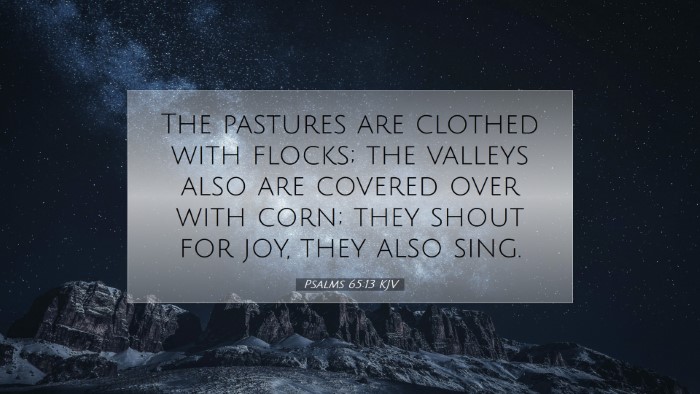Psalms 65:13 - A Commentary
Verse Text: "The meadows are covered with flocks, and the valleys are mantled with grain; they shout for joy and sing."
Introduction
This verse encapsulates the rich imagery of agricultural prosperity and divine blessing. It reflects the joy of creation in response to God’s abundant provision. Various commentators provide insights into the spiritual and theological significance of this verse.
Contextual Analysis
The Psalmist here concludes a song of praise that celebrates the sovereignty of God over nature and His bountiful blessings towards humanity. This section particularly underscores how creation itself responds to God's goodness, which serves as a crucial aspect for understanding the entire psalm.
Divine Provision and Creation's Response
Matthew Henry notes that the imagery of meadows and valleys overflowing with life is not just descriptive but serves as a metaphor for the peace and joy that come from God’s blessings. He emphasizes that this overflow reflects not only physical abundance but also spiritual satisfaction that stems from a right relationship with God.
Albert Barnes elaborates on the symbolism of the meadows filled with flocks and valleys with grain as representations of fellowship with the Creator. He posits that the thriving fields represent the community of believers, nourished by God's grace, and rejoicing in His provision. This connection mirrors the response of nature to the divine, illustrating a harmonious unity between creation and Creator.
Thematic Elements
In exploring the themes presented in this verse, several elements stand out:
- Joy in Creation: The natural world, depicted as vibrant and full of life, rejoices in God's provisions— an invitation for humanity to join in that rejoicing.
- Divine Abundance: The idea that God’s blessings are vast and comprehensive is essential, highlighting His care over all creation.
- Response of Worship: The act of shouting for joy and singing illustrates that the response to God’s goodness is not merely internal but external, manifesting in worship.
Theological Implications
This verse invites theological reflection on God’s providence and the right response of His creation. Adam Clarke points out that the acknowledgment of divine blessings compels the faithful to express gratitude through worship and praise, reflecting the appropriate human response to the divine gift of creation.
The prosperity depicted in the passage has broader implications as well. It illustrates the Kingdom of God, where abundance and joy coexist— a stark contrast to the desolation often found in a fallen world. Clarke presents this imagery as a foreshadowing of the ultimate restoration of all things, where ecology and humanity are perfectly aligned in harmony and abundance.
Connecting Agriculture and Spiritual Life
The agricultural metaphor serves to highlight the integral relationship between our material and spiritual lives. Matthew Henry emphasizes that just as the earth yields its fruits through diligent cultivation, so too does the spiritual life flourish through faithfulness and devotion to God. This produces character and worship that are pleasing to God.
Conclusion
Psalms 65:13 offers profound insights into the relationship between God, humanity, and creation. The flourishing meadows and filled valleys serve as a compelling picture of divine generosity and the joy that should erupt in response from both nature and humankind. By contemplating this verse, pastors, students, and theologians are encouraged to recognize and celebrate the ways in which God's goodness manifests in their lives, spurring them toward worship, thanksgiving, and stewardship of creation.
Reflections for Application
- Embrace Gratitude: Regularly reflect on and give thanks for God’s blessings in your life.
- Engage in Creation Care: Understand your role as a steward of the earth, promoting sustainability and respect for nature.
- Respond with Joy: Participate in communal worship that expresses joy in the goodness of God, recognizing the interconnectedness of all creation.
This analysis encourages a transformation of heart and attitude, recognizing that as we experience God's abundance, we too are called to echo that joy within the world around us.


